The 2024-2025 school year is the first year that the 2018 General Education Program covers all levels from grade 1 to grade 12. One of the important principles of the 2018 General Education Program is integration at lower levels and differentiation from high school level to meet the strengths and abilities of students in career orientation. Therefore, from the past 3 years, applying the new program, when entering grade 10, in addition to compulsory subjects andeducational activities, students will choose a combination of elective subjects according to career orientation.
Students of Ha Huy Tap Secondary School (Binh Thanh District, Ho Chi Minh City) attend a class at Ho Chi Minh City University of Fine Arts.
Reality in recent years shows that many students and parents are confused when choosing subjects for their children to suit their future university career.
ORIENTATION FOR STUDENTS TO UNDERSTAND THEIR OWN STRENGTHS
The goal of the 2018 General Education Program is that in addition to learning basic knowledge and skills, secondary school students will be guided in life goals. In particular, students will learn about occupations and have a sense of career orientation to continue in high school according to career orientation through choosing a combination of elective subjects.
It is from these orientations that Ms. Hua Thi Diem Tram, Principal of Ha Huy Tap Secondary School (Binh Thanh District, Ho Chi Minh City), said that in the past, it was not until high school, even grade 11 or 12, that students were given career orientation and experience in the profession, but now, secondary schools must get involved early. The Principal of Ha Huy Tap Secondary School also pointed out that secondary schools must innovate career guidance work to help students meet the requirements of the 2018 General Education Program at the high school level. Schools must be responsible for equipping students with skills and initial knowledge to approach fields and professions in order to choose the right group of subjects at the high school level.
Referring to changes in career guidance at secondary school level, Ms. Tran Thuy An, Principal of Minh Duc Secondary School (District 1, Ho Chi Minh City), acknowledged that the 2018 General Education Program requires that these requirements must be implemented early. Career guidance today is no longer just about dividing students into educational models suitable for their abilities and family conditions after graduating from secondary school, but also needs to guide students to understand their own strengths, which careers are suitable, which groups of subjects they need to study to choose a high school, etc.
Similarly, Mr. Cao Duc Khoa, Principal of Huynh Khuong Ninh Secondary School (District 1, Ho Chi Minh City), also said: "Career guidance is now different, broader, earlier and has a variety of approaches. In addition to basic knowledge about professions, secondary schools proactively connect to create a foundation for students early, nurture passion, and orient their careers. The earlier the preparation, the more it helps students understand what to study, what to do, so that they can choose suitable subjects and develop their personal abilities to the fullest."
SECONDARY SCHOOL STUDENTS LEARN ABOUT UNIVERSITY
Ms. Hua Thi Diem Tram, Principal of Ha Huy Tap Secondary School, admitted: "I have never thought about connecting with universities, but now I have to do it to provide guidance and advice for students to choose high schools with suitable elective subject combinations so that they can take the high school graduation exam, apply for university admission, and develop themselves." Ms. Diem Tram shared this while building a career guidance and experience program for 8th and 9th grade students.
Right from the beginning of the new school year, the Board of Directors of Ha Huy Tap School has prepared a career counseling plan by synthesizing the elective subject combinations of high schools in neighboring areas or of high schools that students often have the need and desire to study. On that basis, combined with information on the subject combinations for admission to majors and professions of universities, teachers will help students determine which elective subject combinations they study in high school to study what majors they can study at university. The school will build a list to make it easier for students to learn and choose, avoiding as much as possible the study of elective subjects that are not suitable for students' abilities and career orientation.
In addition, many secondary schools have considered letting students learn about the reality of university study and the professions of universities in the development trend. Ms. Tram emphasized: "Organizing students to experience learning about professions and universities is an opportunity for them to listen to themselves in the most positive way. Seeing, knowing, understanding, and enjoying will be the basis for them to choose a subject combination that promotes their abilities, strengths, and personal strengths."
Also in this school year, students of Nguyen Du Secondary School (District 1, Ho Chi Minh City) will take turns to conduct career guidance sessions to experience practice and study at a number of high schools, multidisciplinary universities and vocational training centers... Principal Nguyen Doan Trang said that this is a new point in organizing educational activities of the school. In previous years, the school often connected with high schools to introduce 10th grade enrollment, but up to now, to help students best prepare when entering the high school program, choose the subject combination that suits their abilities, interests and career orientation, the school organizes for students to visit universities, factories, enterprises... The school tries to help students have a diverse view of training types and occupations so that they can make the most accurate choice possible.
From a professional perspective, a teacher in Binh Thanh District commented: "Creating conditions for students to learn about university training majors or experience at university will help them have a visual image of the subject and be more interested in studying. Experience at university helps students nurture their passion and orient their future careers."
According to the orientation of the 2018 General Education Program, students finishing grade 9 will have knowledge about occupations in society to be able to continue studying at high school.
PHOTO: DAO NGOC THACH
LACK OF PROFESSIONALLY TRAINED CAREER GUIDANCE TEACHERS
Although it is a compulsory educational activity in the 2018 General Education Program, the teaching of career guidance content is mostly mobilized from teachers of other subjects and departments in the school.
The vice principal of a secondary school in District 1 (HCMC) said that depending on the topic and theme of the activity, the school assigns a team to participate in developing teaching and career guidance plans. "Obviously, without proper and specialized training in psychological counseling and career guidance methods, the effectiveness of the activity will not achieve optimal results," this person admitted.
A lecturer from the Psychology Department of Ho Chi Minh City University of Education also said that teachers from other fields often have difficulty in absorbing and applying basic concepts of psychology. In addition, according to this lecturer, there are some teachers who participate in counseling and career guidance training courses only because of assignment from the unit, not because of personal passion. As a result, the quality of counseling work has decreased, directly affecting the ability to support students, causing students to not receive the full and quality help needed for personal and professional development.
Mr. Tran Anh Tuan, Vice President of the Ho Chi Minh City Vocational Education Association, acknowledged that there is currently no specialized force in career counseling for students. Teachers are not professionally trained to provide career counseling, and the counseling team lacks practical experience in the process of career counseling and soft skills training for students.
Agreeing with the above comments, an art teacher in Binh Thanh District also frankly stated that the facilities are a limitation in teaching art in high schools. In addition, according to this teacher, during middle school, many students show very good artistic talent, but usually in grades 8 and 9, they will gradually decrease to focus on subjects for the entrance exam to grade 10.
Building career orientation for students right from secondary school
The 2018 General Education Program builds career orientation for students right from junior high school. Accordingly, students are fully equipped with basic knowledge to understand the professions in society through career education activities. Students know the professions; typical activities; qualities and abilities required of people doing the professions they are interested in; know how to consult relatives and teachers about choosing a study orientation after graduating from junior high school, thereby deciding on the path of study and work in the future.
Thus, after graduating from junior high school, students have sufficient knowledge of literature, mathematics, foreign languages, natural sciences , social sciences, technology and other subjects in the General Education Program in a basic and comprehensive way. They have certain understanding of professions in society to be able to continue studying at high school level.
Choosing high school and career orientation at the same time
With over 25 years of experience teaching grade 9, Ms. Tran Thi Van, a teacher at Nguyen Du Secondary School (District 1), believes that career counseling for secondary school students needs to change when applying the 2018 General Education Program.
Grade 9 students today not only have to choose the right high school but also have to choose a combination of elective subjects that suit their abilities.
PHOTO: DAO NGOC THACH
Ms. Van analyzed: "For decades, career guidance for 9th graders has only been advising on choosing 10th grade options to be admitted to public schools. Now, it is also necessary to introduce students to the combination of elective subjects in high school to suit their abilities and future career orientation. In addition, there needs to be information about which combinations of elective subjects in high school can students apply to university, which majors to study, and whether they match their interests and desires or not?"
Besides, Ms. Van hopes: "The consultation needs to be correct and accurate to avoid the case of high school students choosing a high school that does not have a subject combination according to their future career orientation."
From a parent's perspective, Mr. Luu Bao Quoc, whose child is studying at Nam Sai Gon High School (District 7, Ho Chi Minh City), shared: "This year my child is in grade 9, so I researched information about grade 10 admissions and found out that now it is not only about choosing the right high school but also choosing a school that teaches a combination of elective subjects that are suitable for the child's ability." According to Mr. Quoc, these combinations will guide the future career of students, so it is very necessary to have information about the combination of elective subjects at high schools and when studying these combinations, which university and major will be suitable for admission? "In short, career counseling for middle school students is both choosing a high school and orienting a career for university," Mr. Quoc wished.
Source: https://thanhnien.vn/chon-nganh-dai-hoc-tu-lop-9-18524092921485387.htm


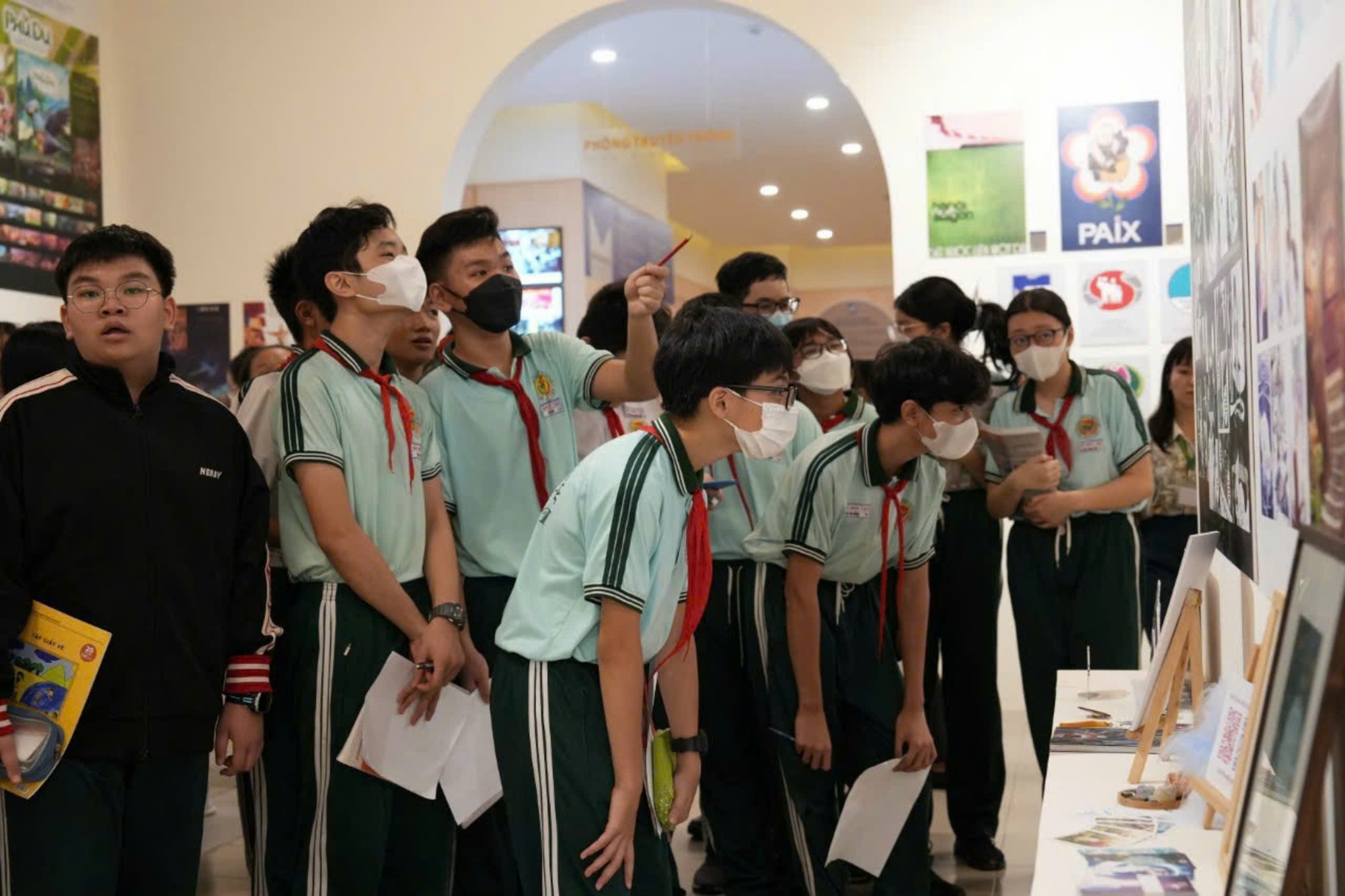
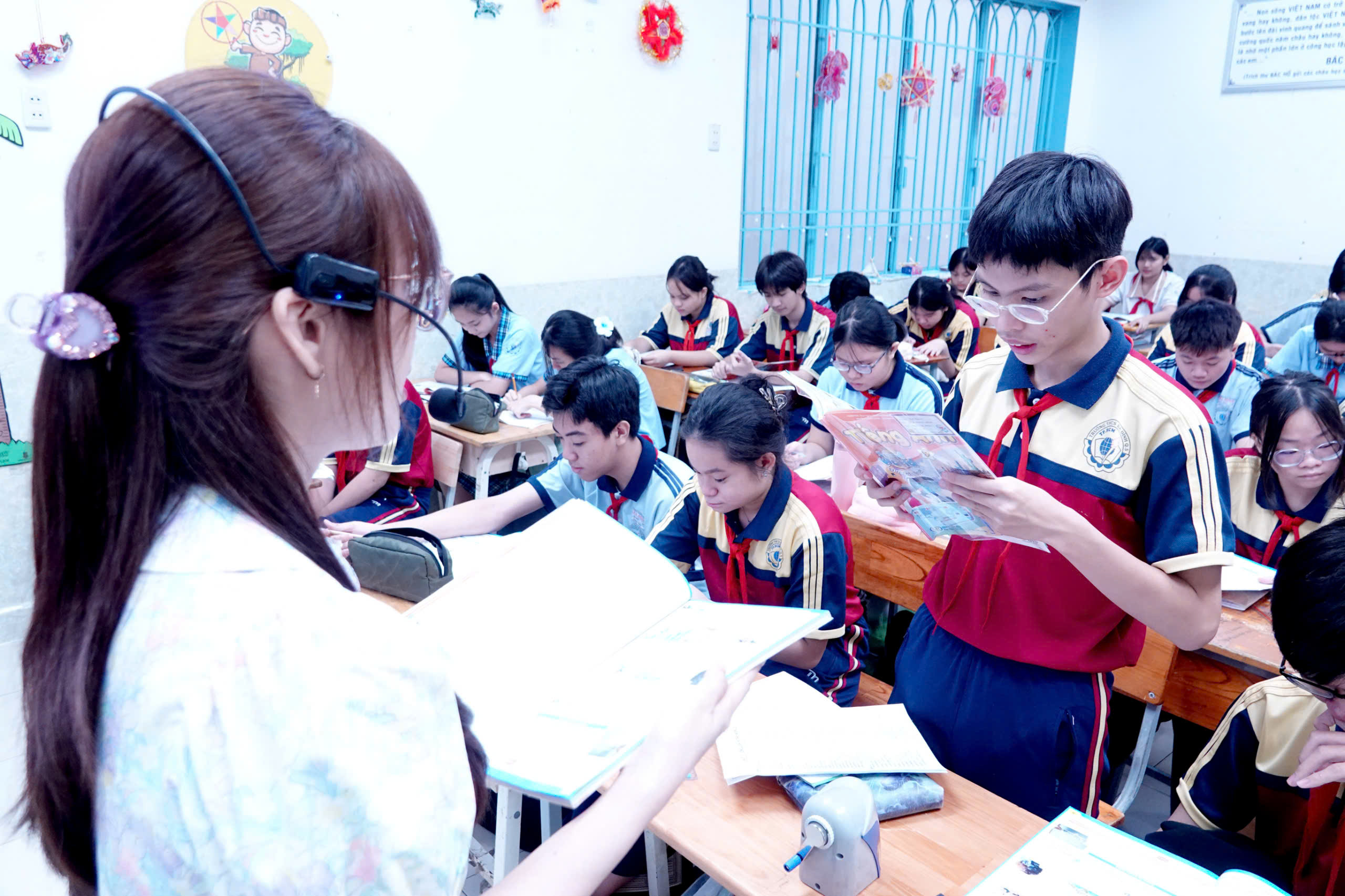
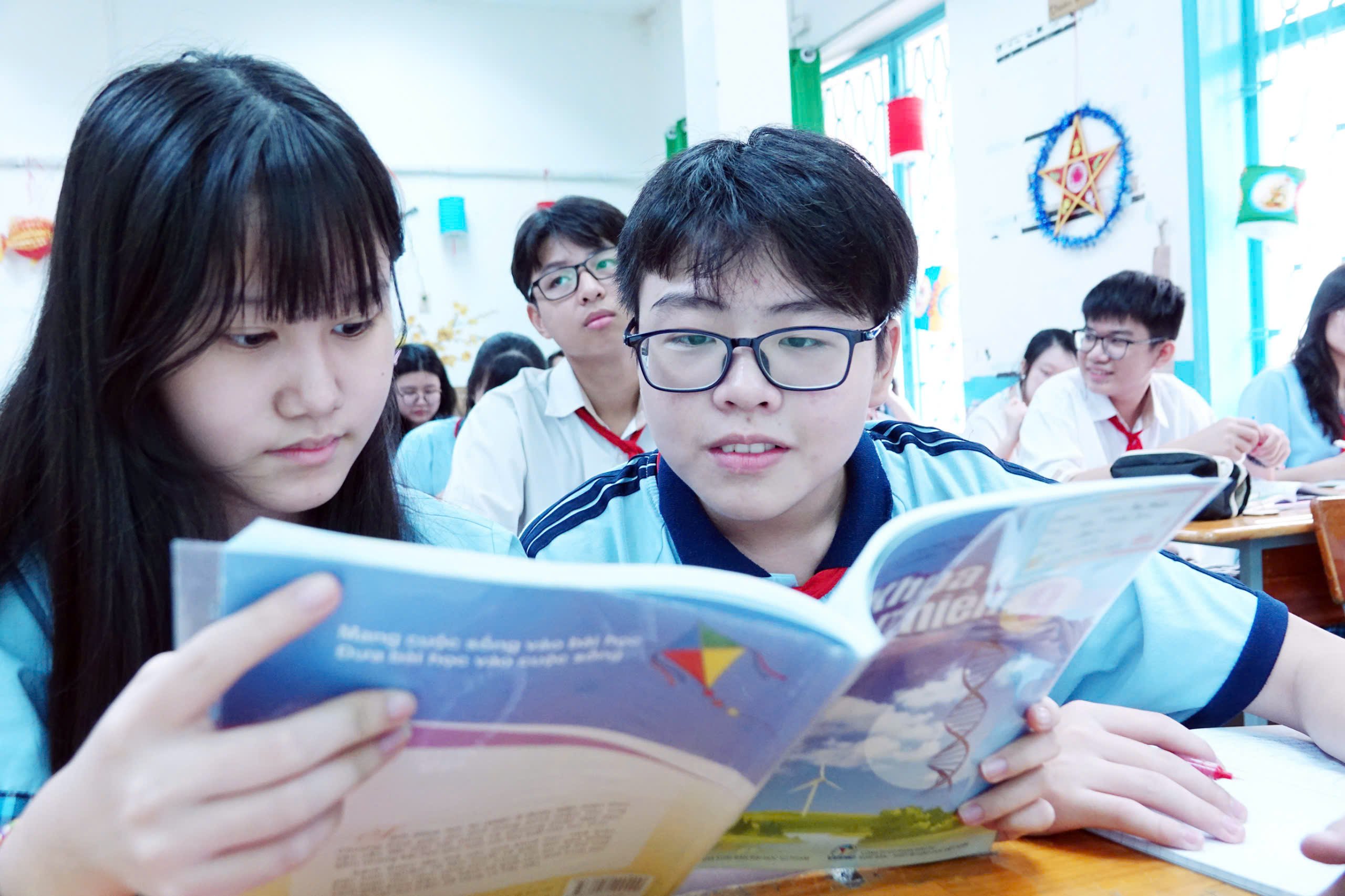

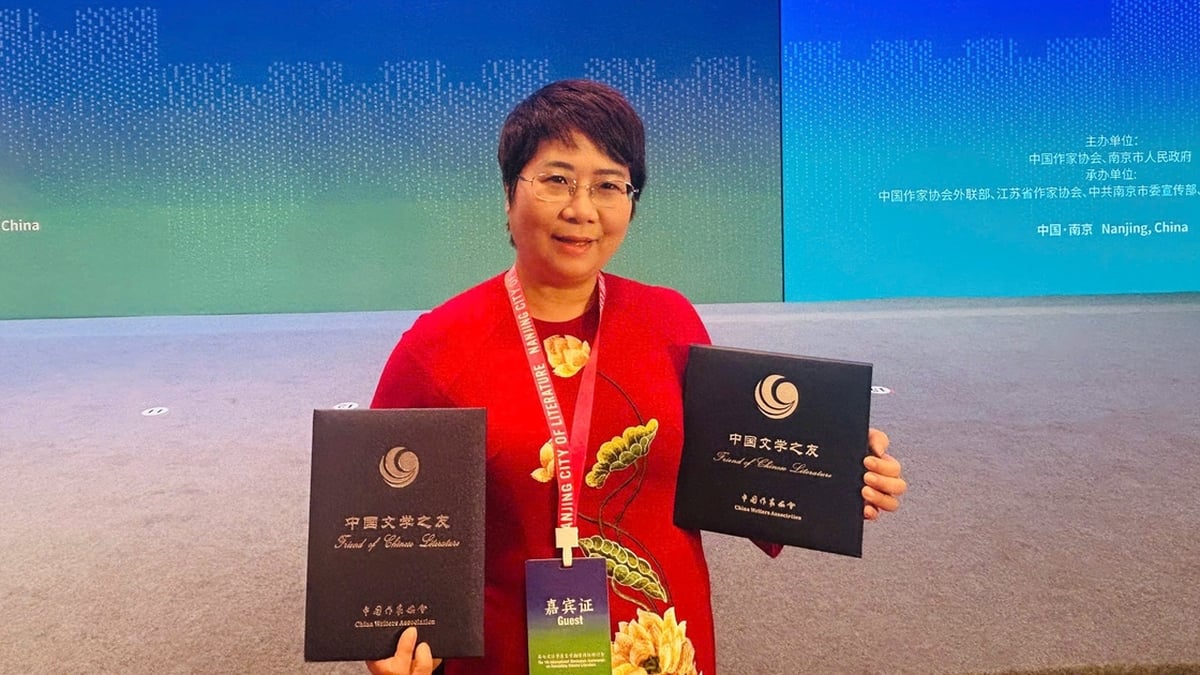



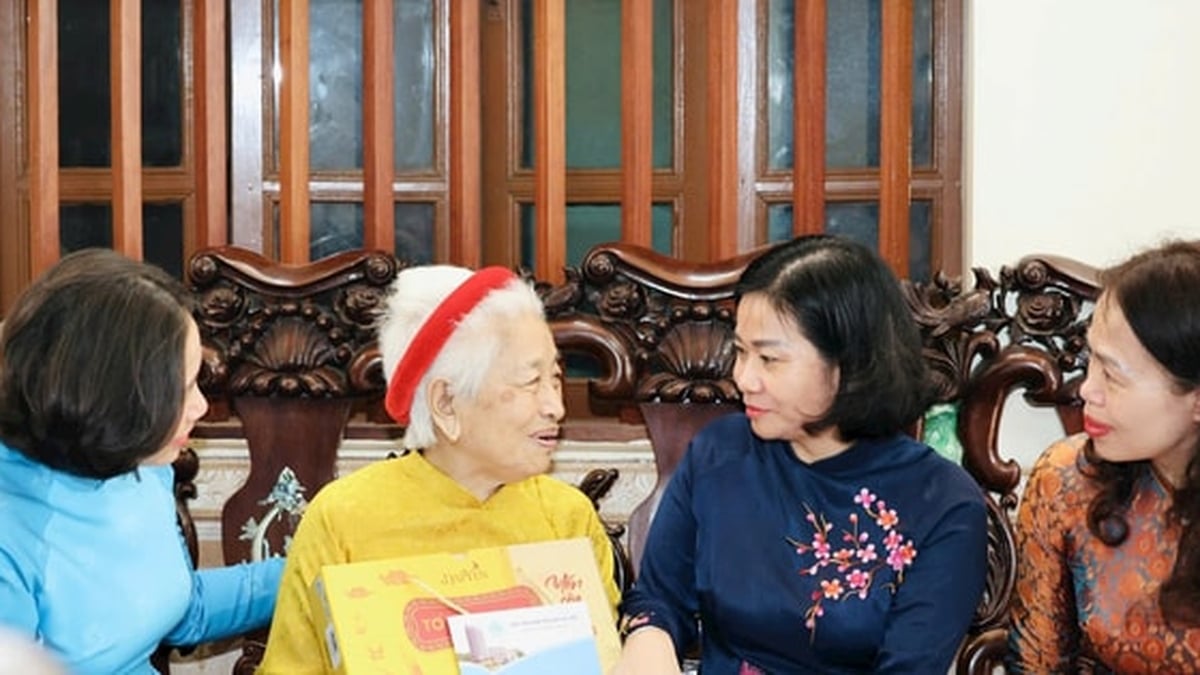














![[Photo] National Assembly Chairman Tran Thanh Man visits Vietnamese Heroic Mother Ta Thi Tran](https://vphoto.vietnam.vn/thumb/1200x675/vietnam/resource/IMAGE/2025/7/20/765c0bd057dd44ad83ab89fe0255b783)





















































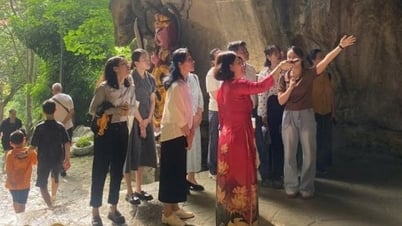
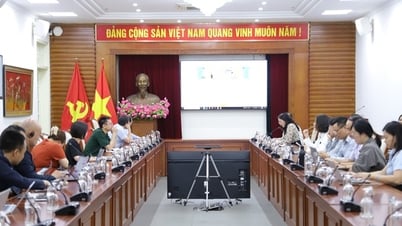





















Comment (0)